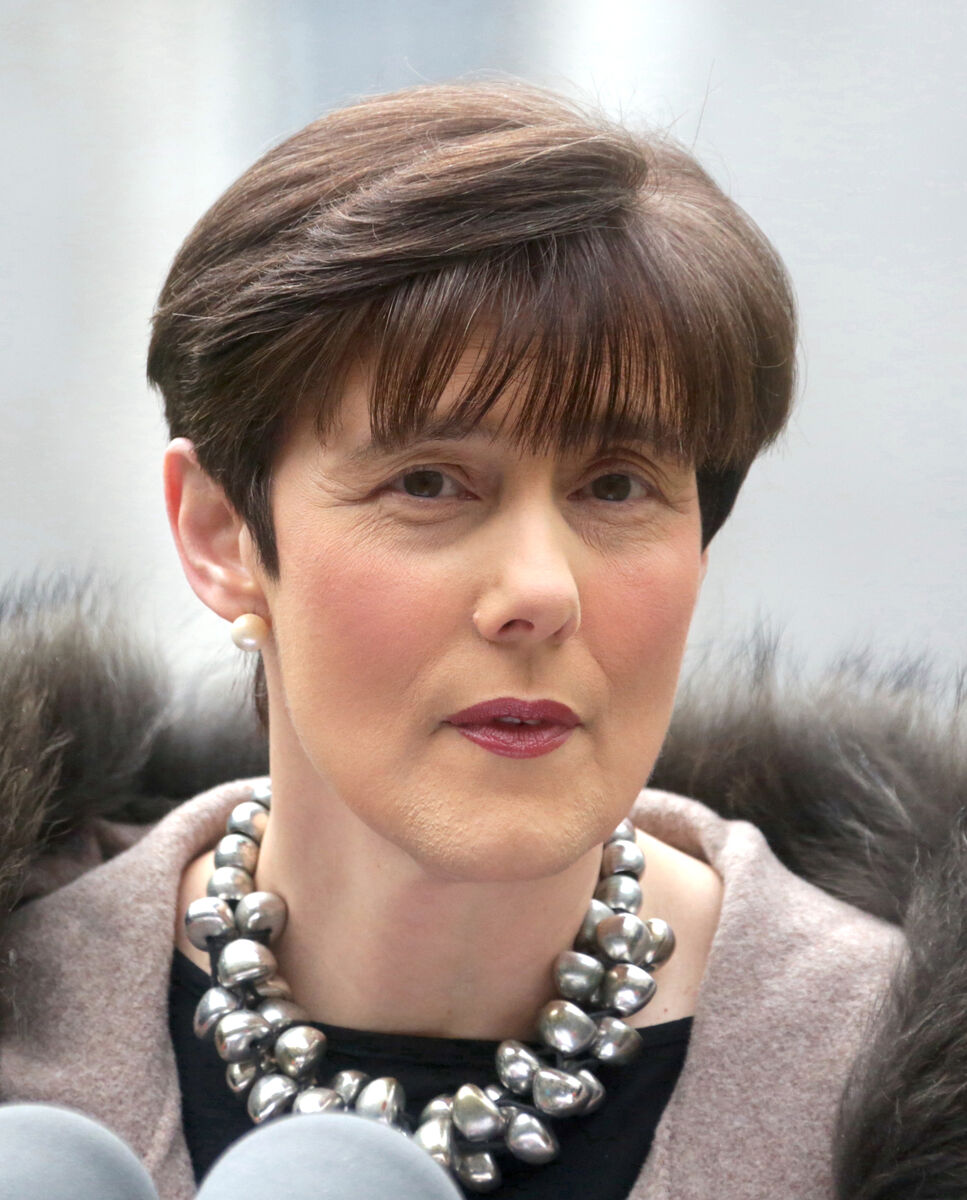'No upper limit' on number of Ukrainian children who can enter Irish schools

Five-year-old Diana Petrovsky arrives at the Kingsley Hotel in Cork with her brother, mother and grandparents from Ukraine on Thursday. Photo: Michael Mac Sweeney/Provision
There is "no upper limit" on the number of Ukrainian children who can enter the Irish school system, with the government stepping up efforts to integrate the growing number of students coming here - some of whom are arriving unaccompanied.
Minister for Education Norma Foley said Education and Training Boards (ETBs) will now act as a "focal point" for new arrivals from the war-torn country, adding that she hoped to see families placed in accommodation which would allow easier access to schools.
It came as Tusla confirmed that 14 young people who arrived from Ukraine unaccompanied are now in care, following 32 referrals since the crisis in Ukraine began.
Minister Foley said approximately 700 Ukrainian children were already registered and attending Irish schools, though the number is likely to be higher, adding there was "no upper limit" on the numbers of children who could travel here.

Speaking in Ballymun, Minister Foley praised the efforts of schools in accommodating Ukrainian students and said she hoped that there could be a "marriage" between accommodation arrangements and school capacity when it came to allowing children from Ukraine to access education here.
The had reported that the Teaching Council was looking to recruit Ukrainian teachers to assist with those efforts, and Minister Foley said other supports would be rolled out, including additional mainstream teachers for schools that need them, as well as extra language supports.
She announced the creation of regional teams that will stretch across the country, based around ETBs, supported by a number of other agencies, which she said would act as "a focal point for Ukrainian families and their advocates to source school places if the immediate school near them is not in a position to accommodate them".
"We are hoping there will be a marriage between the two," she said of the need to link accommodation placements with school places.
Speaking on Morning Ireland, Tusla chief executive Bernard Gloster said 32 referrals had been made to the Child and Family Agency so far regarding unaccompanied minors from Ukraine arriving here, with 14 now in State care. Of those, he said one was in residential care and four older children were in supported lodgings, with nine young people in specialised foster care. The remainder were reunited with relatives.
The Ukrainian crisis has seen the number of unaccompanied minors in the system rise to 95 overall, and Mr Gloster said Tusla staff were working alongside Gardai and other agencies at entry points into Ireland to ensure any young person arriving here was safe and cared for.
"Very often what you will find is, where a large number of people are travelling or fleeing a warzone like Ukraine, they will travel in groups, so teenagers might connect to those groups," he explained regarding how many of the unaccompanied minors are arriving here.
However, he said a 12-year-old had arrived from Ukraine unaccompanied on Wednesday and that Tusla may mobilise additional staff at ports and airports to deal with the influx. He said more families would be recruited to offer specialised placements for children and that "we will try and ensure the greatest level of protection as possible".
A Tusla spokesperson said it was "too early" regarding whether the Child and Family Agency would seek to utilise Ukrainians in the support of young people from the country, including unaccompanied minors.
"Our focus is on supporting children arriving from Ukraine, taking into account their trauma and potential language challenges, etc," the spokesperson said. "It is our intention to develop interpretation services, and perhaps other services as the need becomes clearer."












